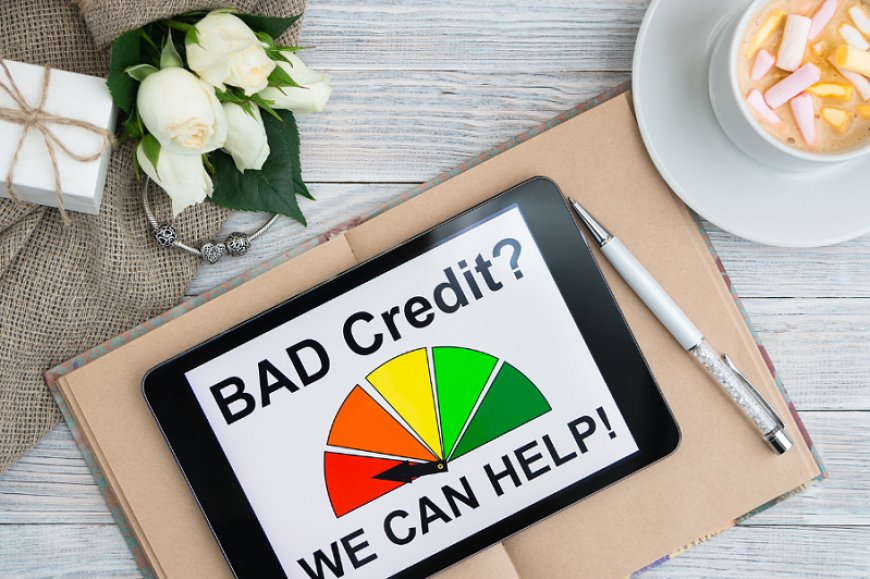What To Do When Loan Cosigning Ruins Your Credit?
Loan cosigning can wreck your credit fast if the borrower fails to pay. Learn how to fix your score without going deeper into debt or taking out another loan.

Cosigning obligates you to be fully liable if the borrower fails to make payments. Most people don't realise this harsh reality until it becomes an issue. You signed your name, assuming you were doing someone a favour. The bank has a different opinion - you promised to pay if they don't. You won't receive any notice before the first missed payment is reported on your account. The loan company will pursue both signatures on the document equally.
Your credit score can drop if you pay a bill late or miss a payment. One late payment of thirty days can drop your score by fifty to one hundred points in a matter of days. This quick drop can change your rating from "good" to "fair." When this happens, your loan and credit card rates may increase. Insurance rates can also increase since most companies consider credit scores today. This change can affect aspects of your life you didn't plan on.
Inform Borrower and Lender Immediately
Finding out that your credit score fell due to a co-signed loan can be detrimental. The second you hear of late payments, get in touch with the borrower and the lender at once. Moving with speed is crucial when handling credit issues that will stay on your report for seven years.
Speak to the individual you assisted and inquire about what became of their payment plan. At other times, they may be too embarrassed to tell you about their financial difficulties until it becomes very bad.
● Call the primary borrower prior to calling the lender.
● Record all dialogue with dates and what was said by whom.
● Inquire whether job loss or medical issues caused payments to cease.
● Offer to help create a budget they can stick to.
● Demand immediate payment of any loan balance due.
● Obtain up-to-date statements of loans indicating late marks.
● Verify the specific dates that the payments were past due or skipped.
Discovering New Directions
Bad credit loans provide individuals with a fresh beginning after co-signing difficulties. They are less concerned about your previous income than your current one. Their concern remains whether you can pay now, not then.
Certain Irish lenders specialise in helping people to overcome credit issues. They provide you with small loans with bad credit in Ireland at first, which you have to pay back in a rush. Each timely payment improves your credit score slightly. The interest rate is higher, but the benefit of fixing your credit is well worth it. it.
Bargain for new deals
Requesting new loan conditions may be able to assist you and the primary borrower in your situation. Lenders prefer offering new terms of payments rather than dealing with complete loan defaults. They can reduce monthly payments or provide you with more time to repay the loan, so every payment will be less stressful.
Beware of deals that seem good but really make matters worse. Some lenders recommend taking out new loans to cover the old ones, which just means taking on more debt for both of you. Taking over the payments must be your last resort, not your first course of action.
● Request a plan of hardship if the borrower is out of work.
● Ask for a reduced interest rate to reduce the monthly payment.
● Check if payment dates can be more closely aligned with paydays.
● Place all new agreement terms in writing before you sign.
● Never pay off a distressed one with a new loan.
● Steer clear of applying late payments to high-interest cards.
● Request to waive late charges if you are paying bills promptly.
How Bad Credit Loans Can Help?
When co-signing, damage hits your credit. There are special loan programs that will correct it. These loans often include free credit monitoring as part of the package. This added feature in loans with bad credit in Ireland allows you to monitor your progress in addition to monitoring new problems on your reports.
A majority of bad credit lenders have plans that get better as you meet the payment targets. You start off with stringent terms, but when you prove to be trustworthy, you can get lower rates or bigger limits. This approach reflects how building trust is done in normal relationships.
Challenge Errors on Credit Reports
Credit reports will contain errors that will make your case appear worse than it is. Minor errors, such as incorrect payment dates or incorrect loan amounts, can unfairly reduce your score. Correcting those errors provides you with an immediate boost as you tackle the larger cosigning problems.
The law gives you valuable rights in handling errors on your credit report, which many people fail to utilise. Credit bureaus are required to reply to complaints within 30 days and delete anything they cannot verify as true. This period benefits you when requesting expedited repairs.
● Obtain free credit reports from the three major credit bureaus.
● Encircle each mistake about the cosigned loan.
● Create clear letters to describe every particular error.
● Add bank statements to confirm the payments were made.
● Mail all documents via certified mail with tracking.
● Follow up each week if no response is received.
● Recheck your reports after 35 days for changes.
Start Small Credit-Building Steps Right Away
While you repair the cosigning harm, start to restore your credit with small positive things. Even small positive marks will ultimately eliminate the bad ones over time. The goal is to establish a new good history that gradually places the bad marks in the past.
Don't wait for good credit to start improving it - start today with whatever means you have. Nearly anyone can get at least one or two products to start building credit, no matter where they are. The secret to doing this is to make the most of these tools so you don't cause new debt issues.
Conclusion
Ask the first borrower to refinance in their name. This discharges you from any liability for future issues. The majority of lenders will permit this if there have been one to two years' worth of payments made on time. The borrower should now possess better credit than when you initially helped them.
If it gets really bad, think about selling whatever you bought with the loan. You can sell a vehicle to pay for the loan, even if you get less money than you owe. You might have some cash to pay, but smaller payments are easier to handle than ongoing problems.
Consider debt settlement if your loan is already in collections. Some companies will accept less money to pay off outstanding accounts. This step decreases your credit score, but it gets you started sooner to make changes. Have any arrangements put in writing before sending any money?
































































































![Coaching and Discovery in Product. What High-Performing Teams Are Doing Differently [TPG Live Recap]](https://tpgblog.com/wp-content/uploads/2025/05/2025-05-08-thumbnail-action.png?#)






![Building A Digital PR Strategy: 10 Essential Steps for Beginners [With Examples]](https://buzzsumo.com/wp-content/uploads/2023/09/Building-A-Digital-PR-Strategy-10-Essential-Steps-for-Beginners-With-Examples-bblog-masthead.jpg)



















































